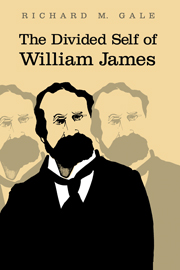Book contents
- Frontmatter
- Contents
- Acknowledgments
- Introduction
- The Promethean Pragmatist
- 1 The Ethics of Prometheanism
- 2 The Willfulness of Belief
- 3 The Freedom of Belief
- 4 The Will to Believe
- 5 The Ethics of Truth
- 6 The Semantics of “Truth”
- 7 Ontological Relativism: William James Meets Poo-bah
- The Anti-Promethean Mystic
- Appendix
- Bibliography of Works Cited
- Index
4 - The Will to Believe
Published online by Cambridge University Press: 05 June 2012
- Frontmatter
- Contents
- Acknowledgments
- Introduction
- The Promethean Pragmatist
- 1 The Ethics of Prometheanism
- 2 The Willfulness of Belief
- 3 The Freedom of Belief
- 4 The Will to Believe
- 5 The Ethics of Truth
- 6 The Semantics of “Truth”
- 7 Ontological Relativism: William James Meets Poo-bah
- The Anti-Promethean Mystic
- Appendix
- Bibliography of Works Cited
- Index
Summary
This is rightly considered James's most distinctive and influential doctrine. Had James looked as goofy as Kierkegaard and the street boys in Cambridge been as mean-spirited as those in Copenhagen who followed Kierkegaard around, taunting him with the snouts of “Either or, Either or!” James would have been hounded by shouts of “Will to believe, Will to believe!” He wouldn't have minded, because at least he would have known that, unlike his father, someone was reading his books. He expounded this idea with religious fervor throughout his career whenever there was the slightest pretext for doing so. It seemed to be innate in him, as were so many of his important doctrines. He defended it in his first major philosophical publication in 1878, at the end of each of his final two books, and in every major publication in between. When he was only twenty-four years old, he gave expression to a protoversion of it in a letter to Oliver Wendell Holmes, Jr.: “But as man's happiness depends on his feeling, I think materialism inconsistent with a high degree thereof, and in this sense maintained that a materialist should not be an optimist, using the latter word to signify one whose philosophy authenticates, by guaranteeing the objective significance of, his most pleasurable feelings” (CWJ 4, 147). The budding idea is that one can be justified in believing some metaphysical worldhypothesis because of the beneficial consequences of so believing.
- Type
- Chapter
- Information
- The Divided Self of William James , pp. 93 - 116Publisher: Cambridge University PressPrint publication year: 1999



